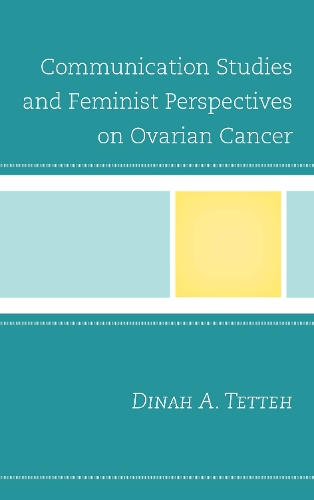
Communication Studies and Feminist Perspectives on Ovarian Cancer
(Hardback)
Publishing Details
Communication Studies and Feminist Perspectives on Ovarian Cancer
By (Author) Dinah A. Tetteh
Bloomsbury Publishing PLC
Lexington Books
15th March 2018
United States
Classifications
Professional and Scholarly
Non Fiction
Feminism and feminist theory
Health, illness or addiction: social aspects
Gender studies: women and girls
Oncology
616.99465
Physical Properties
Hardback
126
Width 158mm, Height 240mm, Spine 16mm
372g
Description
Communication Studies and Feminist Perspectives on Ovarian Cancer examines the embodied experience of ovarian cancer by critically analyzing impacts of normative social and medical discoursesincluding discourses of risk, choice, early detection, lack of reliable screening tests for ovarian cancer, feminine beauty, and self-advocacyon womens communicative responses to the disease and treatments. It argues that these discourses help discredit some ovarian cancer experiences, encourage a one-dimensional perspective on the disease, and divert attention from larger issues such as societys disregard for womens complaints about disease symptoms. Blanket promotion of these discourses essentializes womens experiences of the disease, pointing out how normative beliefs about womens health and illness are often flipped and repackaged as standard language to discuss womens experiences. Using interview data and scholarly work from communication studies, feminist studies, critical/cultural studies, anthropology, critical psychology, and other disciplines, this book suggests we give equal importance to personal experiences and medical/scientific research to advance knowledge about ovarian cancer. Ovarian cancer is a disease specific to women; as such, womens experiences cannot be minimized in attempts to understand the disease.
Reviews
Informed by rhetorical and feminist scholarship on womens health, Dinah Tetteh rightfully centers her analysis of womens ovarian cancer experiences on womens voices. Tettehs work is particularly insightful when she asks us to reconsider from a feminist perspective our expectations for and assumptions about women and ovarian cancer, from reckoning with the survivors guilt of a stage 1 survivor to broadening our understanding of self-advocacy. -- Tasha N. Dubriwny, Texas A&M University
Tettehs book invites us to think critically about the discourse of womens health self-advocacy, directing our attention to the specific challenges of being an assertive, outspoken, and compliant ovarian cancer patient. Her studys explicitly feminist methodology moves from the Angelina Jolie effect to the experiences and voices of a group of non-famous women with ovarian cancer, reinforcing her assertion of the importance of a partnership between women with ovarian cancer and the medical and research communities. -- Martha Stoddard Holmes, California State University San Marcos
Informed by rhetorical and feminist scholarship on womens health, Dinah Tetteh rightfully centers her analysis of womens ovarian cancer experiences on womens voices. Tettehs work is particularly insightful when she asks us to reconsider from a feminist perspective our expectations for and assumptions about women and ovarian cancer, from reckoning with the survivors guilt of a stage 1 survivor to broadening our understanding of self-advocacy. -- Martha Stoddard Holmes, California State University San Marcos
Author Bio
Dinah A. Tetteh is assistant professor in the Department of Communication at Arkansas State University.
